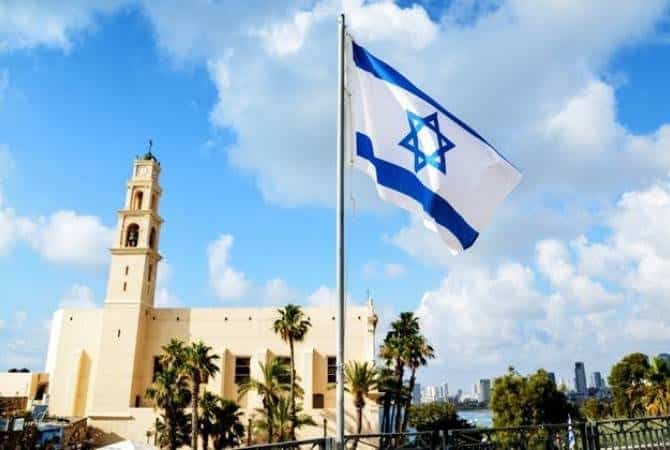Israel Shuts Down Diplomatic Missions Worldwide Amid Escalating Middle East Tensions
Introduction
In a significant and rare move, the State of Israel has temporarily shut down all its diplomatic missions and consular services around the world. The decision comes as a response to increasing geopolitical tensions in the Middle East, particularly following recent military actions and growing security threats to Israeli personnel and citizens abroad.
This unprecedented step not only reflects the seriousness of the situation but also signals how deeply international affairs and security risks have impacted Israel’s foreign policy and overseas operations.
As of now, no specific timeline has been provided for the reopening of embassies or the resumption of consular services. This development has triggered global discussions about regional stability, the safety of Jewish communities, and the preparedness of nations to deal with diplomatic emergencies.
What Triggered the Shutdown?
The immediate reason behind the global closure of Israeli embassies and consulates is linked to Israel’s recent military operations in neighboring regions. According to Israeli authorities, these operations were “pre-emptive in nature,” aimed at neutralizing potential threats that were being orchestrated by hostile entities.
While details about these operations remain classified, experts believe they involved precision airstrikes, intelligence missions, and other covert activities in parts of the Middle East where tensions have long simmered. The reactions to these actions have been swift, with several non-state actors and hostile groups vowing retaliation.
Consequently, Israeli intelligence agencies, in coordination with the Foreign Ministry, concluded that there was a credible threat to diplomatic staff and citizens stationed or residing in various global regions.
Global Diplomatic Missions on Hold
As a direct result of these developments, all Israeli diplomatic missions—including embassies, consulates, and cultural centers—have ceased their operations temporarily. The suspension includes both political functions and public consular services such as visa processing, passport renewal, legal certifications, and more.
Israeli embassies have officially gone into a “security lockdown mode,” and many staff have been instructed to either return to Israel or relocate to secure undisclosed locations.
The Foreign Ministry has issued a statement noting:
“All Israeli diplomatic personnel have been advised to halt operations until further notice and to remain in constant communication with headquarters in Jerusalem.”
Impact on Israeli Citizens Abroad
This closure affects thousands of Israeli citizens currently living, working, studying, or traveling abroad. Typically, Israeli missions play a vital role in assisting nationals with legal issues, medical emergencies, travel complications, or visa renewals.
To compensate for this gap, the Israeli Foreign Ministry has rolled out emergency protocols:
1. Location Tracking System
Israeli nationals are now being urged to register their current geographic location with the Foreign Ministry using a secure online portal or official mobile app. This is meant to enable quick communication and coordinated evacuation if necessary.
2. Security Guidelines
Citizens have been advised to:
-
Remain low-profile
-
Avoid large public gatherings
-
Steer clear of protests or politically charged events
-
Refrain from openly displaying national symbols or speaking Hebrew in high-risk areas
These advisories reflect a growing concern that Israeli citizens abroad may become targets in response to regional political backlash.
International Reactions and Protective Measures
The global response to this announcement has been swift and serious. Many Western nations, including the United States, Germany, the United Kingdom, and Sweden, have acknowledged the heightened threat environment.
Germany:
Security has been significantly increased around Israeli diplomatic buildings, Jewish community centers, and synagogues. Police patrols are visible in high-density Jewish areas, particularly in Berlin, Frankfurt, and Munich.
Sweden:
In Stockholm and other major cities, authorities have deployed specialized law enforcement units to monitor locations associated with Israeli and Jewish organizations. Surveillance and emergency response protocols have also been enhanced.
France and the UK:
Jewish schools and community centers in Paris and London have tightened access controls, installed metal detectors, and implemented curfews for events involving children or elderly members.
Security of Jewish Communities Worldwide
While Israeli diplomatic missions are being shut down as a direct security measure, Jewish communities worldwide are also on high alert. According to the World Jewish Congress, threats against Jewish institutions tend to rise following high-profile political or military events involving Israel.
Synagogues, Jewish cultural organizations, and schools have begun reviewing their security infrastructure, including:
-
Emergency response drills
-
Reinforcement of entry points
-
Security staff coordination with local law enforcement
-
Remote learning setups for vulnerable students
Many of these communities are not new to such precautions, but the current threat level has prompted them to go beyond standard protocols.
Implications for Diplomacy and International Relations
Israel’s decision to suspend its diplomatic presence globally could have ripple effects on various diplomatic processes, from visa issuance and immigration to bilateral cooperation and trade negotiations.
Short-Term Consequences:
-
Foreign nationals planning to visit Israel may face delays in visa processing.
-
Businesses that rely on consular services may experience disruptions in contracts and transactions.
-
Foreign ministries of other countries may need to coordinate directly with Tel Aviv or Jerusalem rather than local embassies. Embassies
Long-Term Risks:
-
This move could weaken Israel’s diplomatic momentum in new regions where it is trying to establish deeper relations, such as Africa and Southeast Asia.
-
Hostile nations may interpret the move as a sign of internal vulnerability, encouraging more aggressive rhetoric or actions.Embassies
The Role of Mossad and Shin Bet
Behind the scenes, Israel’s intelligence agencies—Mossad and Shin Bet—are reportedly working around the clock to assess threats to Israeli assets and citizens abroad. Both agencies are known for their precision in identifying potential attacks before they occur.
It is believed that Mossad has issued intelligence bulletins to key partner nations regarding coordinated risks, while Shin Bet focuses on domestic protection and securing return logistics for traveling personnel.Embassies
Cybersecurity teams have also been deployed to monitor digital threats to embassies, which often face cyberattacks during periods of heightened political tension.Embassies
Petrol and Diesel Prices Likely to Increase from June 16 in Pakistan
Read This Articles
A Look at Past Precedents
Although rare, Israel has taken similar steps in previous decades during moments of extreme crisis:
-
1972: Following the Munich Olympics massacre, diplomatic and intelligence networks were heavily restricted and placed under tight security.
-
1991 Gulf War: During the Scud missile threat from Iraq, embassy operations were briefly suspended in some nations.
-
2012–2014: Certain embassies operated on partial capacity due to threats from groups like Hezbollah.Embassies
However, what sets this current scenario apart is the complete, global shutdown—a move not seen in Israel’s modern diplomatic history.
When Will the Missions Reopen?
As of now, Israeli officials have not announced any specific date for the reopening of diplomatic missions. The Foreign Ministry has indicated that all reopenings will be “gradual and based on risk assessments.”
The situation remains dynamic, and future decisions will depend on:
-
The security of regional and global Jewish communities
-
Stability in key Middle Eastern theaters
-
Assurances from international partners on protection and cooperation
-
Threat-level reductions as determined by Israeli intelligence servicesEmbassies
What Can Israeli Citizens Do in the Meantime?
Israeli citizens abroad are advised to take the following steps:
-
Register Immediately: Use the Foreign Ministry’s online system to report your current location.
-
Avoid Risky Travel: Postpone non-essential trips to high-risk regions.
-
Secure Communication: Use encrypted apps and avoid public Wi-Fi when contacting Israeli agencies.
-
Emergency Numbers: Stay informed about local emergency contacts and embassies of allied nations that might assist in crisis.
-
Stay Informed: Follow updates from trusted Israeli and international news sources to remain updated on developments.Embassies
Conclusion: A Pivotal Moment in Israeli Diplomacy
The temporary shutdown of Israeli diplomatic missions across the globe is a watershed moment, not only in terms of security strategy but also in the evolving nature of international diplomacy. This proactive measure underscores how global the consequences of regional military action have become.Embassies
While the decision may inconvenience travelers and disrupt business or consular services, Israeli authorities maintain that safety and national security remain their top priorities. At a time when threats transcend borders, the nation’s emphasis on protection over protocol sends a clear message: preparedness is paramount.Embassies
As Israel and its allies navigate this complex situation, the international community watches closely, hoping for de-escalation and a swift return to normal diplomatic operations.




